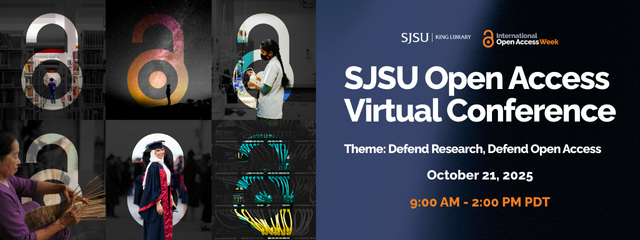The Opportunities and Challenges of a Locally Open Online Course (LOOC)
Location
King Library 225/229
Start Date
25-10-2013 10:30 AM
End Date
25-10-2013 11:30 AM
Description
This presentation discusses the opportunities and challenges of designing and implementing a locally open online course (LOOC) for an educational community in Northern California. One of the goals within the teacher education program at Sonoma State University (SSU) is to build and nurture strong partnerships with local offices of education and their respective educators. Within the School of Education at SSU, we decided to experiment with a locally open and online course with an interested county partner as a way to meet this goal.
Jessica and her teaching assistants re-envisioned and revised one of the most popular educational technology courses in the Education’s graduate program in curriculum, teaching, and learning for this specific educational community. In this presentation, they will highlight the hurdles to creating an open and online graduate-level course and share preliminary findings related to enrollment, student engagement, and changes in pedagogical practice. Although the logistics of the LOOC were cumbersome and bureaucratic, the design and implementation processes were a collaborative, invigorating, and productive experience for Jessica and her teaching assistants. This model can provide a local alternative to the MOOC that is demographically targeted, pedagogically situated, and helps to build and nurture the partnerships that are most meaningful to a university department, discipline, and its faculty.
The Opportunities and Challenges of a Locally Open Online Course (LOOC)
King Library 225/229
This presentation discusses the opportunities and challenges of designing and implementing a locally open online course (LOOC) for an educational community in Northern California. One of the goals within the teacher education program at Sonoma State University (SSU) is to build and nurture strong partnerships with local offices of education and their respective educators. Within the School of Education at SSU, we decided to experiment with a locally open and online course with an interested county partner as a way to meet this goal.
Jessica and her teaching assistants re-envisioned and revised one of the most popular educational technology courses in the Education’s graduate program in curriculum, teaching, and learning for this specific educational community. In this presentation, they will highlight the hurdles to creating an open and online graduate-level course and share preliminary findings related to enrollment, student engagement, and changes in pedagogical practice. Although the logistics of the LOOC were cumbersome and bureaucratic, the design and implementation processes were a collaborative, invigorating, and productive experience for Jessica and her teaching assistants. This model can provide a local alternative to the MOOC that is demographically targeted, pedagogically situated, and helps to build and nurture the partnerships that are most meaningful to a university department, discipline, and its faculty.

